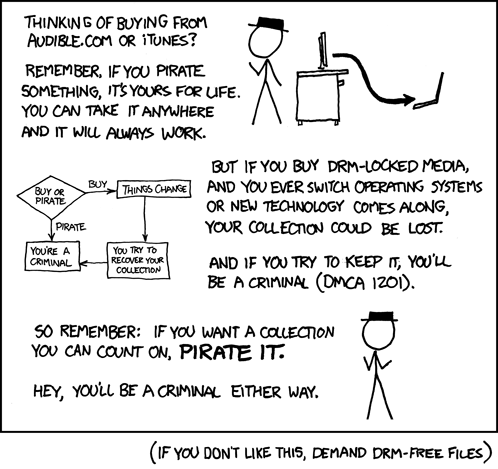 Once upon a time it used to be easy to find free wifi. If you needed to check your email or do a bit of work while on the go it just used to be a matter of popping into the nearest coffee shop.
Once upon a time it used to be easy to find free wifi. If you needed to check your email or do a bit of work while on the go it just used to be a matter of popping into the nearest coffee shop.
But increasingly these pools of signal seem to be drying up, sometimes being replaced by costly pay-for-access hotspots, sometimes vanishing entirely.
The few free (as in beer) access points still around are increasingly not free (as in freedom) to access. Many force you to enter personal details, which is, at best, time consuming if you just want to read your email while drinking your coffee, and, at worst, downright invasive. Others, like the one at my former favourite office away from home, are now requiring you to ask for an access token – again, not something you’re going to do if in a hurry or if you are just there for a coffee.
Some coffee shops (Costa I’m looking at you) have even gone to the point of requiring you to join their rewards club and / or turning off all the power points so you can’t recharge.
All of these measures give a sense that they don’t really want their customers to use the wifi they’re providing.
What could be the reasons behind this trend I wonder? Here are a few off the top of my head…
People aren’t drinking enough coffee
One possibility in the above coffee shop example is that people are setting up with their laptops, monopolising a table, and not drinking enough coffee. I think this is probably because they are engrossed in what they are doing, or are unwilling to leave valuable laptops unattended while ordering, rather than necessarily scamming the store for the free wifi.
Regardless of the reasons it is obviously a problem, but one I’m pretty sure could be solved by having table service, and the availability of accessible wifi and readily available coffee and tasty nibbles brought to your table while working would certainly make me spend more money.
Times are hard
Thanks to government overspending, the collapse of the banking system, and a few illegal wars, times are hard and we’re all feeling the pinch. Perhaps the idea of giving away something for nothing (even if that something costs nothing to provide) may not seem as attractive a prospect as it once did.
Collecting user details seems to also be a bit of a cynical attempt to monetise the customer in new ways.
The Digital Economy Act
I think that it is more than just a coincidence that the decline in open wifi started happening after Labour’s disastrous digital economy bill was bullied through parliament by the BPI.
This bill transfers liability for anything illegal that an internet user does to the person who pays the bill, meaning that a coffee shop would be responsible for any copyright infringement performed by their customers.
This is obviously a strong disincentive for anyone wanting to run open wifi in their place of business, and runs counter to the stated aims of the bill (the real aims of course being to further entrench established monopolies, but that’s a subject for another rant blog post).
Myself, I’m thinking about just getting a Mifi on Giffgaff and giving up on the whole ubiquitous wifi concept, but that seems like admitting defeat. This doesn’t seem to be a problem elsewhere in the world, what are your thoughts?

 Otto von Bismarck once said: “
Otto von Bismarck once said: “
